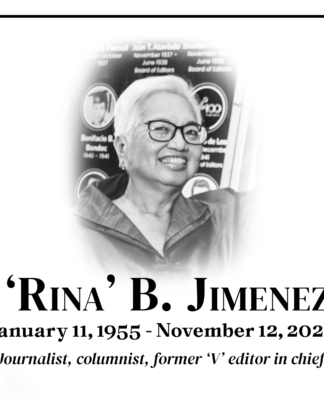TWO THOMASIANS were among the country’s top 12 researchers named by the Department of Science and Technology (DOST) at the 74th annual meeting of the Natural Research Council of the Philippines (NCRP) last March 8 at the Manila Hotel.
Maribel Nonato, assistant to the rector for research and development and Center for Research on Natural Sciences director, was cited for her pioneering research on the medicinal properties of the genus Pandanus (pandan) plant species. She was cited in the NCRP’s Chemical Sciences division.
“It feels good to know that other researchers believe in the work I have been doing,” Nonato told the Varsitarian.
On other hand, Allan De Guzman of the Center for Educational Research and Development was awarded top researcher under the Governmental, Educational and International Policies division. He was cited as an author and reviewer of scholarly articles in the field of pedagogy, nursing and library science education, as well as for popularizing qualitative research methods in education studies which were published in international journals. He was also cited as a facilitator of several development programs for administrators, teachers and students of various schools and national professional organizations.
NRCP, which was established in 1933, has 2,968 members nationwide who are spread over the 12 areas of scientific knowledge which include Earth and Space Sciences, Medical Sciences, and Pharmaceutical Sciences, among others.
Since 1979, before Nonato and de Guzman, seven Thomasians had been cited: three from the Pharmaceutical Sciences: Clara Lim-Sylianco (1988), Norma Lerma (1995), and Rosalinda Solevilla (2002 ); two for Chemical Sciences: College of Science Dean Fortunato Sevilla III (1994) and Beatrice Guevara (1999); and Tito Torralba for Medical Science and Rustica Carpio Humanities in 2003.
During this year’s meeting, the members of the NRCP discussed ways to respond to a number of pressing global and national concerns, such as natural disasters, disease and epidemic management, climate change, and human cultural productivity. Marc Laurenze C. Celis



















